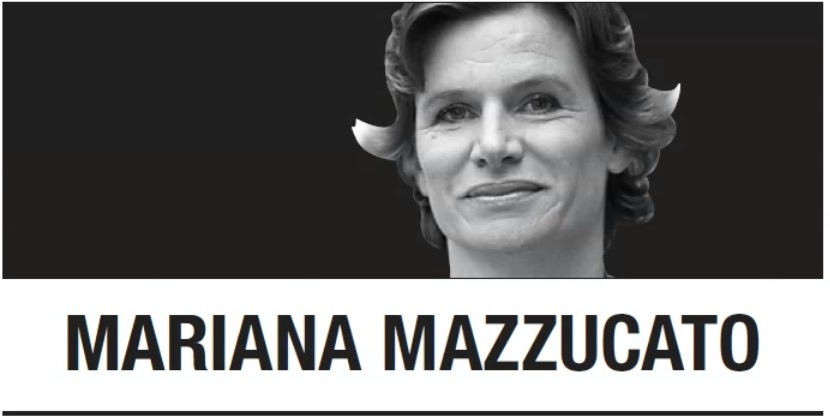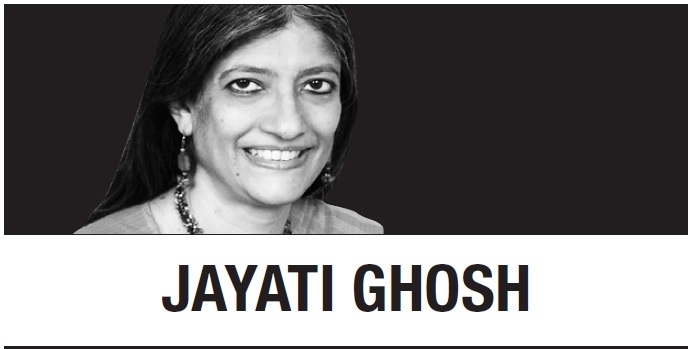At their recent meeting in Bali on July 15-16, G20 finance ministers reaffirmed their commitment to coordinated action to get the COVID-19 pandemic under control and better prepare for the next global health emergency.
A central topic was the creation of a new financial intermediary fund (FIF) to address pandemic preparedness and response (PPR), under the trusteeship of the World Bank and with the World Health Organization playing a central technical and coordinating role. The goal is to close some of the annual PPR financing gaps of $10.5 billion and help strengthen capacities critical to protecting global health, including genomic sequencing and drug manufacturing.
Over the next month, the G20, World Bank, and the WHO will finalize the FIF design, under heavy external pressure to develop an equitable and inclusive governance structure. The Indonesian G20 Presidency has enabled some preliminary agreements that move in the right direction. For example, there is an emerging consensus that the FIF’s governance must include low- and middle-income countries, non-G20 partners, and civil society. Moreover, G20 countries acknowledge that the FIF must build on the existing global health framework for PPR, with a central role for the WHO.
The next step is for the G20 to recognize more explicitly that an effective PPR mechanism, as a global common good, requires a FIF model based on universal contributions (according to capacity) and representation and universal access to benefits.
But while all current FIF stakeholders seem to agree on inclusive governance in principle, design discussions are still happening with only the founding donors in the room. Lower-income countries and civil-society representatives remain outside. The G20 should set a deadline: By Aug. 1, 2022, all stakeholders should be fully included in design conversations via a constituency-based model that gives equal weight to all voices, irrespective of their financial contributions. This includes a voting role for civil society -- an increasingly important norm in global health governance.
The FIF should mark a long-overdue departure from the current approach, which treats PPR as a favor that rich countries do for poorer countries. Nothing could be further from the truth. Recall that it was South Africa’s novel approach to low-cost, high-impact genomic sequencing that helped the world detect and understand the omicron variant last November -- a tremendous global public service. But about one-third of all countries currently do not have the resources and capacity to do any genomic sequencing, with huge gaps across Africa and Latin America in particular.
These are also regions where vaccine hoarding by the Global North has meant that COVID-19 continues to circulate among largely unvaccinated populations and mutates at rates that have left public health officials and pharmaceutical companies struggling to keep up. The FIF will work only if all countries -- starting with the G20 -- are bought in, and all countries do their share to detect, contain, and confront outbreaks with the full kit of diagnostic, treatment, and prevention tools.
The inclusion of the WHO in the FIF is a central piece of the governance structure. Hardwiring it into the FIF’s design should include having the WHO chair the technical advisory group to assess and weigh the evidence and data required to inform priorities. The WHO is not only the leading hub of scientific expertise and coordination for global health; it also represents 194 countries, providing essential legitimacy.
While the FIF is meant to augment existing donor and national PPR investment in public health, there are already signs that its fundraising could cannibalize the resources of well-tested complementary mechanisms like the Global Fund and the Coalition for Epidemic Preparedness Innovations. If the FIF undermines resourcing for the rest of the global PPR framework simply to become the shiny new deliverable at this year’s G20 summit, it will have done more harm than good for global health security.
The scale of financial need -- particularly in low- and middle-income countries confronting a massive debt crisis and soaring inflation -- far surpasses what even the most effective FIF will be able to deliver. As part of its commitments to PPR, the G20 should redouble its efforts to bring China and private creditors to the table to renegotiate mounting debt burdens through its Common Framework, or face the risk of many more Sri Lanka-style debt defaults and growing social and political unrest in the coming months and years.
To ensure the success of the FIF and global PPR efforts more broadly, the G20 must take all measures within its control to provide debt relief and free up fiscal space in low- and middle-income countries. This includes extending the Common Framework and the Debt Service Suspension Initiative, and developing effective ways to ensure private-sector participation; eliminating austerity conditions from International Monetary Fund loans that encourage countries to cut public spending in areas like health; increasing liquidity through additional allocations of special drawing rights (the IMF’s reserve asset), and exploring more creative financing mechanisms like the “debt for health” swaps used by the Global Fund.
The new FIF proposal and broader G20 and World Bank actions on PPR cannot afford to deliver “health for some” -- the wealthiest and most privileged. This is a morally bankrupt and woefully ineffective approach. Now is the time to pivot toward a more promising “health for all” approach, starting with an inclusively governed FIF and economic interventions that better enable low- and middle-income countries to invest as required in their own health systems.
Mariana Mazzucato, Jayati GhoshMariana Mazzucato, Founding Director of the UCL Institute for Innovation and Public Purpose, is Chair of the World Health Organization’s Council on the Economics of Health for All. Jayati Ghosh, professor of economics at the University of Massachusetts Amherst, is a member of the UN Secretary-General’s High-Level Advisory Board on Effective Multilateralism.
(Project Syndicate)







